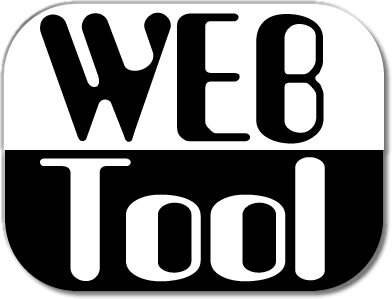
How can you land a job if you are downsized?
With unemployment hovering near double digits for months, it's a question several people in Greater Memphis are facing right now.
Most companies, given the uncertainty in the economy, still are reluctant to add permanent workers. But for some job seekers, it's still possible to find fine full-time work.
Getting job, though, takes effort -- and there are specific strategies essential for an effective job search.
Candice O'Brien, a senior recruiter for FedEx Services, offers these pointers:
Prepare a solid resume. "Your resume should include detailed information on your skill and skill set in addition to your accomplishments and accolades," O'Brien said.
Use social networking sites. "Many employers reference social networking sites such as LinkedIn.com and Jobster.com when conducting candidate searches," she said.
Focus your search. "Start with a targeted list of employers," O'Brien said. "What are the top 10 companies that you would like to work for? Maintain track of your job search efforts."
Network, network, network. "Consider joining niche networking organizations related to your field of expertise. Consider making a 'career transition' business card that you can distribute throughout your network."
A number of people in Greater Memphis have followed these tips, and landed work.
Here are their stories.
Angelette GhadeleneAngelette Ghadelene of Memphis worked for GTx Inc. as quality manager before she was downsized in December 2009.
She received a severance package and began an aggressive job search in January, including attending several of the Memphis career transition groups. At those meetings, often held at houses of worship, Ghadelene learned about networking.
"That was a key factor," she said. Meeting with people to let them know she was out of work and to get their advice, counsel and referrals in her job search was something Ghadelene previously found to be "least helpful." At this point in her life, she said, it became very beneficial.
She reconnected with professional groups she formerly attended. At one of these, she met a couple of people from McKesson RxPak and gave them her résumé. Within two months, she was hired.
During her sojourn in the job-search market, Ghadelene said she felt "less than as worthy as you should." Having a job-search buddy helped. When Ghadelene was discouraged, her friend would encourage her and vice versa.
Ghadelene said that after she was hired, her confidence returned.
Frank GaravelliAnother person who found himself out of work was Frank Garavelli, who lives near Bartlett. Garavelli worked for six years for American Stairways Inc., which sells folding attic stairs. In early 2008, as regional sales manager, he met with a customer in Dallas who told him that in Florida, there was a 40-month supply of new homes.
Garavelli could see the writing on the wall. In October 2008, he was downsized.
He knew networking was important, so he began contacting as many people as he could.
He talked with one company about a sales manager position, but it was an offer he could not accept.
Garavelli began attending career transition groups at Our Lady of Perpetual Help Catholic Church, Germantown Church of Christ, Sycamore View Church of Christ, Bartlett United Methodist Church, Grace Church in Olive Branch, Hope Presbyterian Church, St. Andrew's Episcopal Church in Collierville and Temple Israel.
Meanwhile, Garavelli networked with his former business school professor at the University of Memphis, Dr. George Lucas, who told him that he and Don Hutson had written a new book, "The One Minute Negotiator." A book signing was scheduled for Davis-Kidd on Sept. 1.
Garavelli met with his former professor. He was invited to two interviews and was hired to work for U.S. Learning Inc., the Don Hutson organization. He began his new job Sept. 20.
Staying in touch with people paid off for Garavelli.
Ann MeierAnn Meier of Memphis worked in a corporate job in Greater Memphis and was downsized last December. In her 15 years of living in Memphis, she said, she had networked to get nearly every job she had landed.
So when she began her job search in January, she knew what to do. She knew to dress up, to write thank-you letters and to mind her P's and Q's, she recalled.
She plugged back into career transition groups and began networking. In a career transition group, she met a man who later told her of a job that was open in training. This was the type of job Meier was seeking.
In mid-June, she applied, and was hired July 7. "This job, I directly attribute to networking," she said.
Ron WalkerYet another Greater Memphis resident, Ron Walker, found himself looking for a new job for the first time. He had worked for First Tennessee Bank for 26 years before he was downsized in January. The way the economy was, he could see this coming, he said.
"I was treated very fairly," he said, adding that he still loves First Tennessee.
Walker began attending career transition groups. "I stayed busy," he said. He networked, taught a finance class at the University of Memphis, did consulting work and increased his volunteer work at Hope Presbyterian Church.
In his networking, he met a person who gave his résumé to the FEDEX Employees Credit Association, where a job was open.
On Oct. 12, he began his job as CFO of FEDEX Employees Credit Association.
He knows a lot of other people are still out of work.
"These are tough times," he said.
Carolina MaderoCarolina Madero agrees that the times are challenging, whether you are younger or older. She graduated from Vanderbilt University in May with a bachelor's degree in communication studies. She said some of her fellow grads chose to enter graduate school or enlist in Teach for America. Her choice was to look for a job.
Madero moved back home to Memphis and joined a career transition group. Not only did she network, she said, "I used every resource I could."
The Vanderbilt career center sent out an e-mail blast that included a job listing for Abercrombie & Fitch's corporate headquarters.
Madero applied.
Soon thereafter, she got an e-mail from the clothing company, saying they were interested in her.
Madero was sent three interview-style questions. She had two Skype interviews. Then she interviewed at the home office in Columbus, Ohio.
While she awaited a response, she continued to job-search in Memphis. That's a strategy she learned from the career transition groups.
She also networked in pursuit of the job at Abercrombie & Fitch. Through her alma mater, she learned of another Vanderbilt graduate who worked for that company. Madero said he was in a good position with the clothing company.
"I called him out of the blue," she said. "I'll never know how much that helped me."
Madero was hired by Abercrombie & Fitch in merchandising, and began working there the first week of October. She has one word to describe how it felt to get hired: "Ecstatic."


















